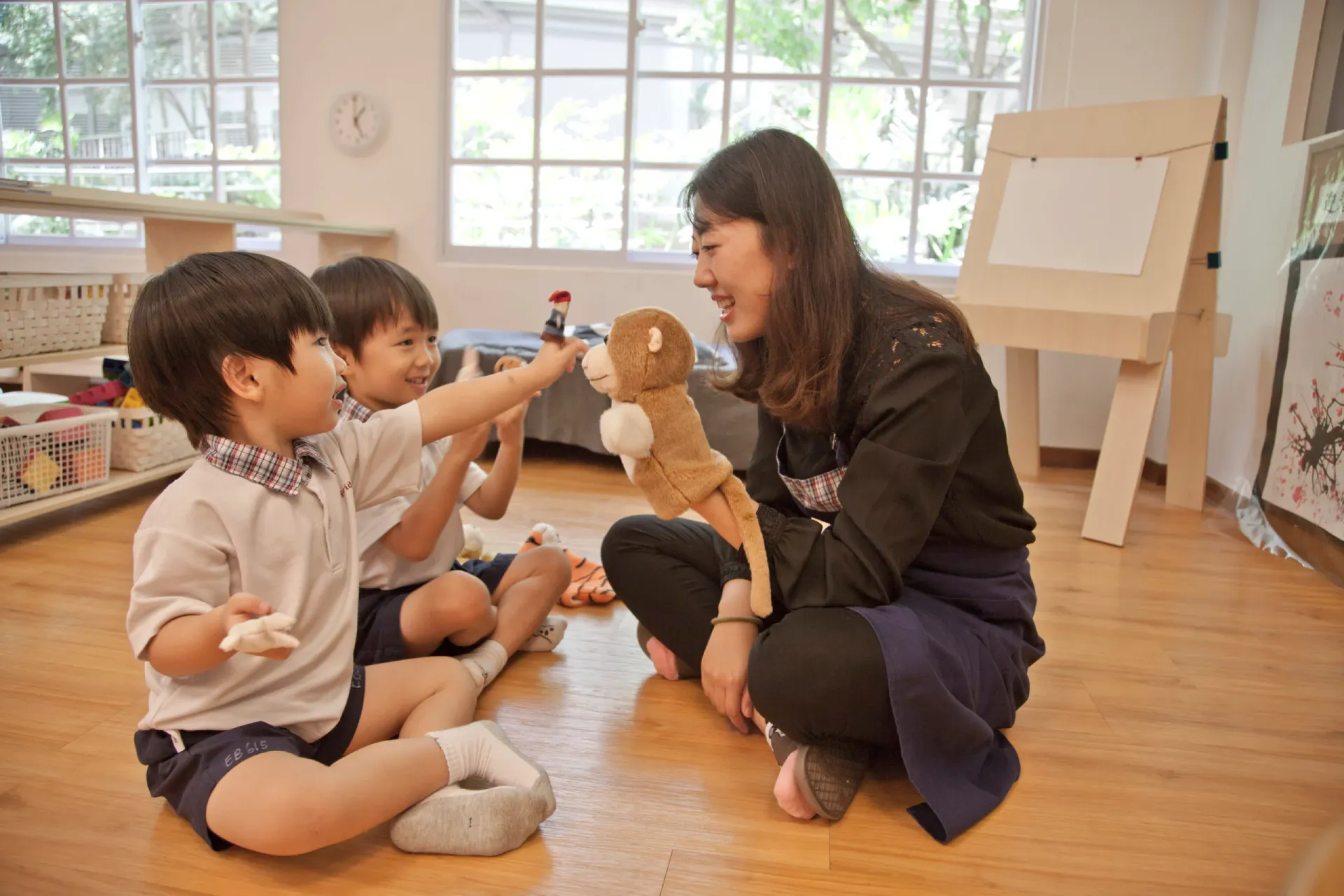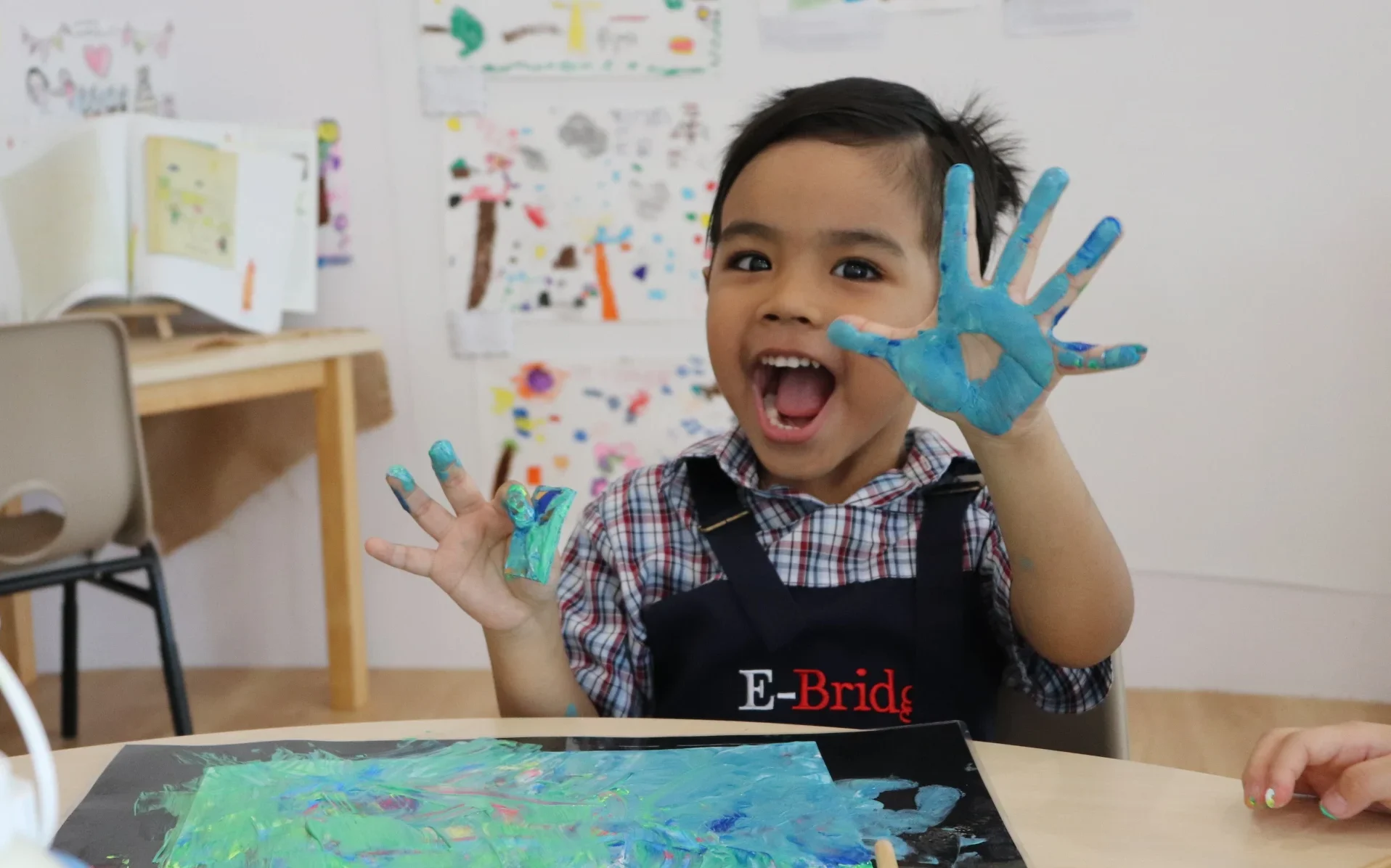Key Takeaways
- Children who ask “why” are showing early signs of critical thinking, emotional engagement, and growing independence as curious learners.
- Fostering curiosity in young children helps them grow into confident thinkers with a strong sense of purpose and understanding.
- E-Bridge Pre-School actively supports each curious learner through child-led education, responsive teaching, and environments designed to spark meaningful exploration.
When “Why?” Becomes a Daily Question

“Why does the monkey swing from the tree?” “Why does he make that sound?”
These playful questions show your child’s natural curiosity in action. Every question is a chance to explore, discover, and learn through imaginative play. At E-Bridge Pre-School, one of the best childcare centres in Singapore, our educators use puppets, stories, and hands-on activities to spark their interest, encourage expression, and nurture a love of learning.
Through guided play, children are given the space and support to ask, wonder, and experiment, helping them develop critical thinking, communication skills, and confidence—all while having fun. In this article, we explore how thoughtful, play-based learning helps young, curious learners thrive.
What Makes Curious Learners So Special?
1. They’re Learning How to Think Deeply
When children ask “why,” they’re not just looking for answers—they’re learning how to think. These questions reflect early reasoning skills as they explore how things work and how ideas connect. A curious learner is practising analysis and pattern recognition, as well as forming their own perspective of the world.
2. They’re Getting Emotionally Invested in Learning
Curiosity shows that something matters to your child. When they ask questions, it demonstrates engagement and personal investment in what they’re learning. This makes learning more relevant, exciting, and memorable, helping them absorb and retain knowledge meaningfully.
3. They’re Growing in Confidence and Independence
Asking questions takes courage. When children feel safe to wonder aloud, they begin to trust their thoughts and take ownership of their learning. Over time, this builds confidence, independence, and willingness to explore new ideas—key traits for lifelong learners.
How Reggio Emilia Preschools Nurture This Curiosity

Given the many benefits of nurturing curiosity, it’s important to choose a preschool that actively supports and celebrates this natural drive to explore. At E-Bridge Pre-School, our approach is inspired by the Reggio Emilia philosophy, which views children as capable, curious individuals with the right to lead their own learning.
1. The Environment Sparks Exploration and Wonder
A curious mind flourishes in the right space. Our classrooms are thoughtfully designed with natural materials, open-ended resources, cosy nooks, and shared spaces to encourage investigation, creativity, and discovery.
This environment supports inquiry-based learning by giving children the freedom to follow their interests, reflecting a core Reggio belief: the environment itself acts as a teacher, guiding and inspiring learning every day.
2. Educators Are Co-Learners, Not Just Instructors
Our educators don’t simply provide answers—they join children on the learning journey. They ask thoughtful questions in return, prompt further exploration, and help extend thinking. This respectful, reciprocal relationship builds trust and keeps curiosity alive.
At E-Bridge, we believe that encouraging curiosity in early childhood starts with listening. That’s why our educators are trained to observe, reflect, and respond—not to direct every step, but to walk alongside each child as they discover the world.
3. Expression Takes Many Forms
Not all questions begin with words, and not all answers come as sentences. That’s why we honour the many ways children express their curiosity, whether through drawing, building, movement, or storytelling.
These multimodal expressions are key to supporting different learning styles. In our classrooms, a curious learner might explore a question through art one day and dramatic play the next. This freedom helps children develop both creatively and cognitively, and is an essential part of child-led education.
Supporting the Learners of Today—and Tomorrow
If you’re searching for childcare in Singapore that truly values your child’s natural curiosity, E-Bridge Pre-School offers a nurturing, thoughtful approach grounded in the Reggio Emilia philosophy.
Through inquiry-based learning, responsive educators, and rich environments, we empower each child to become a confident, curious learner. By building critical thinking, communication skills, and self-confidence from the earliest years, we also help children transition into formal education with resilience, adaptability, and a love of learning.
Contact us today to learn more about what we do.
